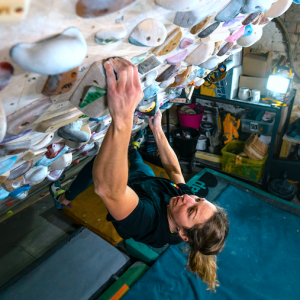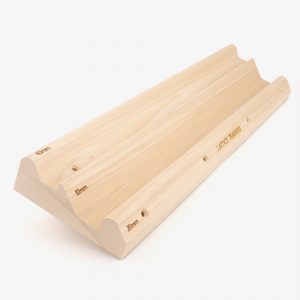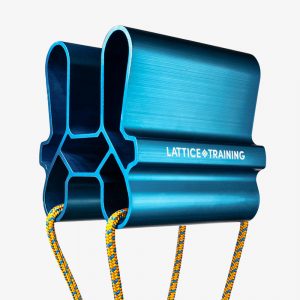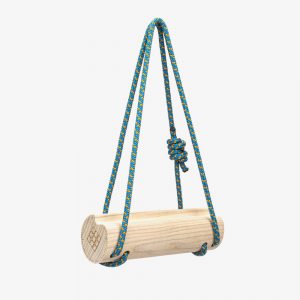Climbing Training for Older Climbers
As we age our bodies undergo certain physiological changes that can affect our climbing performance and training needs. From hormonal changes, to declining muscle mass and decreased mobility and flexibility, our bodies change as we age there’s no hiding from it!
As such we should change our approach to training if we want to get the most out of the time we put into training and enjoy climbing for many years to come.
Here are 9 considerations to help the ageing climber;
1. Recovery and Injury Prevention
As we mature, recovery tends to take longer, and the risk of injury may increase.
Therefore it’s essential to prioritise rest and complete proper warm-up and cool-down routines. Listen to your body and avoid overtraining, as it can lead to more extended periods of recovery.
Determining a warm-up should always be individual, as with most things in training there is no one size fits all approach that will work for everyone. Below is a video of a great starting point, but be sure to adapt to your own specific needs and find something that works for you,
2. Strength Training
Include strength training in your weekly routine to maintain muscle mass and bone density.
We naturally start to lose muscle as we get older, so incorporating strength exercises can help offset this decline. Focus on compound (multi-joint) movements, meaning exercises that directly involve more than one of your joints.
Examples of compound exercises include;
- Squats
- Deadlifts
- Pull-ups
All of which should enhance overall climbing performance.
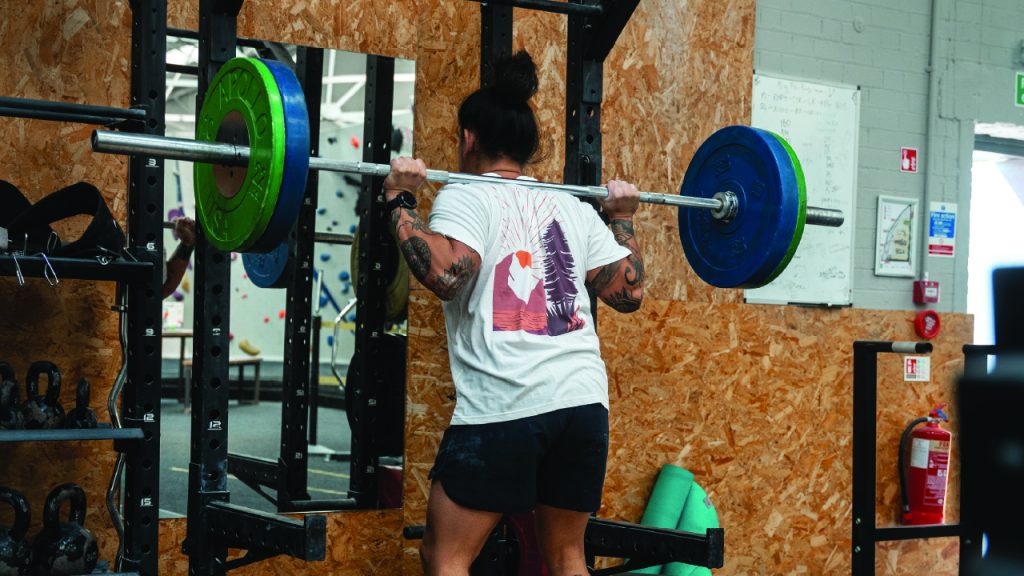
3. Flexibility and Mobility
Stretching and mobility exercise become even more critical as we age.
They can improve our range of motion, reduce the risk of injuries and even help with recovery. Aim to incorporate regular stretching and mobility work into your training routine.
If you’re looking for a quick climbing specific follow along to get started check out this one from Lattice Flexibility coach Josh;
4. Skill and Technique Emphasis
Climbing is a sport where skill and technique can make a significant difference. As we get older, it can become more challenging to rely solely on raw strength, so focus on refining your climbing technique and honing your skills.
Try to climb more mindfully and look out for opportunities to practise techniques such as;
- Twisting
- Heel hooks
- Flagging
- Toe hooks
As well as trying a variety of sessions and climbing styles including;
- Projecting
- Flashing
- Slabs
- Vertical
- Overhangs
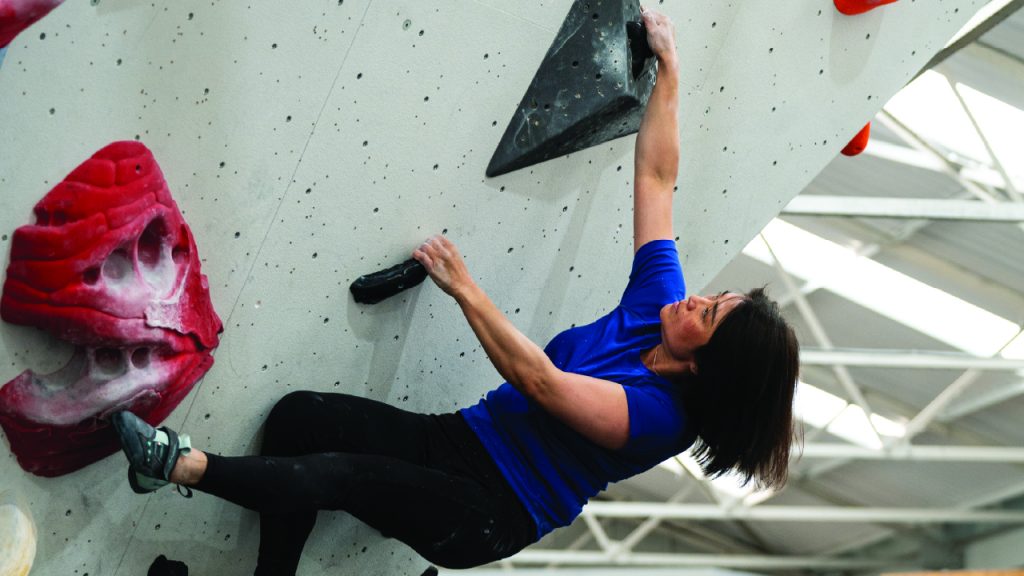
5. Climbing Volume and Intensity
Depending on your fitness and climbing level, you might need to adjust the volume and intensity of your climbing sessions. Appraoches that worked for you in your 20s might not work for you in your 40s, and there may be certain considerations to factor in when planning. Areas like; climbing trips, adding new stimuli to training and approaching de-load cycles might need more careful consideration and planning.
Be mindful of your body’s response and adapt your training accordingly.
For more on this, be sure to listen to our podcast episode: Peak Performance for Climbers in Their 40s and Beyond with Tom Randall, as he shares some practical steps you can take to get your volume and intensity right.
6. Cross-Training
Consider adding cross-training activities such as yoga, pilates or swimming to your routine. These activities can improve flexibility, core strength and cardiovascular fitness, which can all benefit your climbing performance and overall well-being.
If you’re looking for a climbing-specific yoga session, check out this follow-along from Flexibility coach Fran;
7. Rest and Sleep
Adequate rest and quality sleep become increasingly important as we age. Aim for 7-9 hours of sleep per night to support recovery and overall health.
Sleep is important because it is when our bodies recover! As with most elements of our training, sleep is a skill and we can train this too.
Here are some tips to help you beat tiredness;
10 hours before bed
Limit your caffeine intake. Caffeine is a stimulant and may disrupt your sleep pattern.
3 hours before bed
Limit intense training. High adrenaline can keep you awake.
2 hours before bed
Final meal of the day, allowing time for food to be digested and metabolised.
90 minutes before bed
Darken room the room. Darkness supports melatonin levels.
(Melatonin is a hormone that regulates your sleeping).
60 minutes before bed
Limit screen time, this hinders melatonin levels.
20-30 minutes before bed
Relaxing pre-bed routine: A good book, podcast or meditation are some great ways to wind down.
Bedtime
Try putting your phone on flight mode to limit unwanted distractions during sleep.
Numerous studies relate sleep length and quality not just to physical outcomes, but to cognitive performances as well. Good climbing performances require an optimum blend of both, so prioritising sleep to spend that extra time in bed ouught to be a no brainer.
8. Nutrition
Pay attention to your nutrition to support your climbing performance and recovery. As we age, our metabolism may slow down and nutritional needs may change.
If you can, consult with a nutritionist or dietitian to optimise your diet according to your age, gender and activity level.
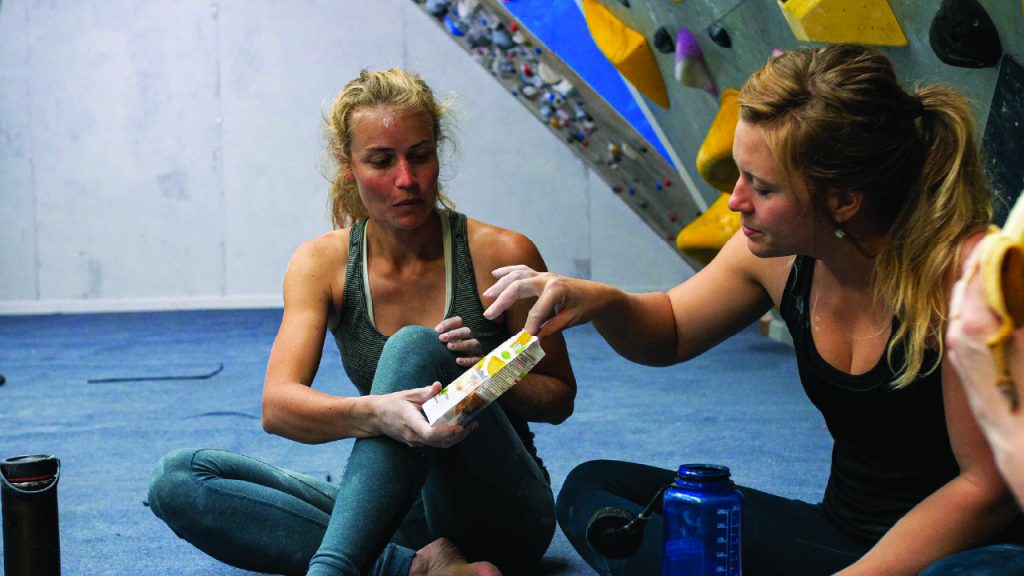
9. Injury Management
If you have any pre-existing injuries and chronic conditions, it’s essential to manage them properly.
Seek medical advice from a sports medicine professional or climbing specific physical therapist to develop a training plan that considers your specific needs.
Remember, everyone’s individual needs and circumstances differ. So it’s always a good idea to consult with a climbing coach or trainer who can create a personalised training plan based on your age, gender, specific goals, training history, available facilities and available time – avoid cookie-cutter (one size fits all) approaches to your training.
We have been writing 100% customised training plans to suit all climbers for 8 years, and have the largest team of coaches in the industry to help support your journey. If you want to find out more about our services drop our friendly team an email on: [email protected] or check out our plans below;
Performance Coaching Plans: 100% customised plans with 1:1 coach support.
Lattice Training Plans: 100% customised plans without ongoing coach support.


